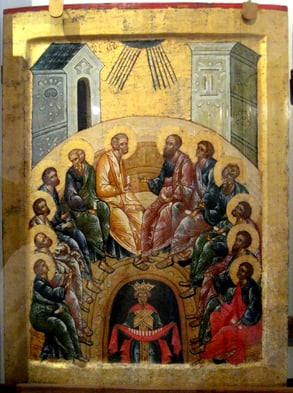Does anyone else feel like parenthood has given you a profound realization of your own mortality? I mean apart from the feeling that you might actually just drop dead if you have to watch Frozen one more time.
As I watch my daughter grow and develop at lightning speed, it’s an all too tangible reminder that I, too, am getting older. Sometimes I imagine watching her graduate, or get married, or have kids of her own, only to realize that in those days, I will likely be twice my current “anything-is-possible” age of twenty seven. I will be in my *gasp* fifties, sixties, seventies and beyond. (And for those of you who are already there, please be patient with these musings of a kid). Those moments that pass so quickly for my daughter are passing for me, too.
It’s not that getting older is a terrible thing. I very much look forward to the beauties of being older, like the infinite wisdom, grandchildren, and awesome senior discounts, not necessarily in that order. But every moment that I grow older is another moment that I grow closer to the day I finally cash in my chips, bite the big one, check into the horizontal Hilton.
The thought of impending death makes me ask myself, as I’m sure it makes anyone else ask, “What is the most important thing to do before I die?”
Should I go skydiving? See the world? Be a good wife and mother? Sell everything I have and give to the poor? Pray liturgies more regularly and more accurately? Re-pursue my dance career with newfound gusto so that I can be the next Martha Graham like I always dreamed?
I found an answer to this recently when my husband recommended I read On Acquisition of the Holy Spirit in preparation for Pentecost. (Look at what a good, submissive wife I am! I'm going to have to remind my husband of this later). In this text, St. Seraphim says that only one thing is truly important in life and that this one thing is the oil that the foolish virgins lacked in their own lamps. He says it is this one thing that makes all those others on the bucket list truly “living” and worthwhile.
 Image of the icon of Pentecost. The Holy Spirit descends upon Mary and the Apostles, who surround the cosmos or the world personified.
Image of the icon of Pentecost. The Holy Spirit descends upon Mary and the Apostles, who surround the cosmos or the world personified.
It isn’t good deeds.
It isn’t virtue.
It isn’t even prayer.
While all these things are important, they are the means and not the end.
What is most important, St. Seraphim says, and what is the aim of the Christian life is the acquisition of the Holy Spirit:
‘However prayer, fasting, vigil and all the other Christian practices may be, they do not constitute the aim of our Christian life. Although it is true that they serve as the indispensable means of reaching this end, the true aim of our Christian life consists of the acquisition of the Holy Spirit of God.'
This shouldn’t have really been a surprise to me: it’s one of the foundational principles of Eastern Christian spirituality that the we are called to be truly “spiritual” persons and that this means actually having the Holy Spirit dwell within us. But St. Seraphim’s words throughout Acquisition seemed to more greatly illumine that classic principle.
It's important to address a reasonable question here before moving on: if we received the Holy Spirit at Baptism and if He was sealed in us at Chrismation, why do we need to continue to “acquire” Him?
In the Eastern Christian churches, grace is not something created by God, hence the common phrase “uncreated light." Rather, it is the energies of God himself. The essence of God is unknowable, but we can perceive and even participate in His energies. A common analogy for this is the sun: we cannot really ever touch or experience the main part of the sun itself, but we can feel the warmth and the light of its rays.
So to acquire the Holy Spirit after Baptism and Chrismation is to acquire grace, and to acquire grace is to acquire the Holy Spirit.
Two statements in the text seemed to jump out at me: St. Seraphim's description of the effects of grace...
'the grace of the All-Holy Spirit of God which is obtained through good deeds and which changes souls from one state to another - such as, from a corruptible state to incorruptible state, from spiritual death to spiritual life, from darkness to light, from the stable of our being (where the passions are tied up like dumb animals and wild beasts) into a temple of the Divinity, the shining bridal chamber of eternal joy in Christ Jesus our Lord, the Creator, Redeemer and eternal Bridegroom of our souls.’
...and his explanation of how this grace of the Holy Spirit can actually be acquired:
'Mark my words, only good deeds done for Christ's sake brings us the fruits of the Holy Spirit. All that is not done for Christ's sake, even though it be good, brings neither reward in the future life nor the grace of God in this life.’
So I can be the best wife and mother in the world or the best dancer or the most rigorous ascetic or sing every note and say every word correctly at every liturgy, and none of it is rewarding, none of it is living, and none of it is truly enlightening if it isn’t offered to Christ.
I’m left with the conclusion that maybe it isn’t just about what to do before I die but how I do it that matters.
Okay, so that's probably not a new idea for me or for you. However, I think the application of that idea often falls to the wayside, at least in my own life:
How often do I get caught up doing a million things for “my” multiple ministries and pat myself on the back for jobs well done while failing to have offered any of it to Christ?
How often am I frustrated and anxiety-ridden over the things I do less than perfectly and assume the effort was worthless instead of just putting it in Christ's hands?
How often do I leave church bemoaning a missed note by the cantors or the annoyances of the people in the next pew compared to how often I bemoan the moments in that liturgy when I was doing it for me and not for Christ?
Dear Brittany and dear Reader: one thing is necessary, and it is life-giving and illuminating.
Thankfully, St. Seraphim is quick to point out that, even though we fall, all we need is sincere repentance, faith in Jesus Christ, and continued good works offered for his sake to live a life of grace.
He didn't mention Martha Graham, but I think I'll keep the dream on the bucket list anyway.
Copyright 2014 Brittany Balke
About the Author

Guest
We welcome guest contributors who graciously volunteer their writing for our readers. Please support our guest writers by visiting their sites, purchasing their work, and leaving comments to thank them for sharing their gifts here on CatholicMom.com. To inquire about serving as a guest contributor, contact editor@CatholicMom.com.



.png?width=1806&height=731&name=CatholicMom_hcfm_logo1_pos_871c_2728c%20(002).png)
Comments